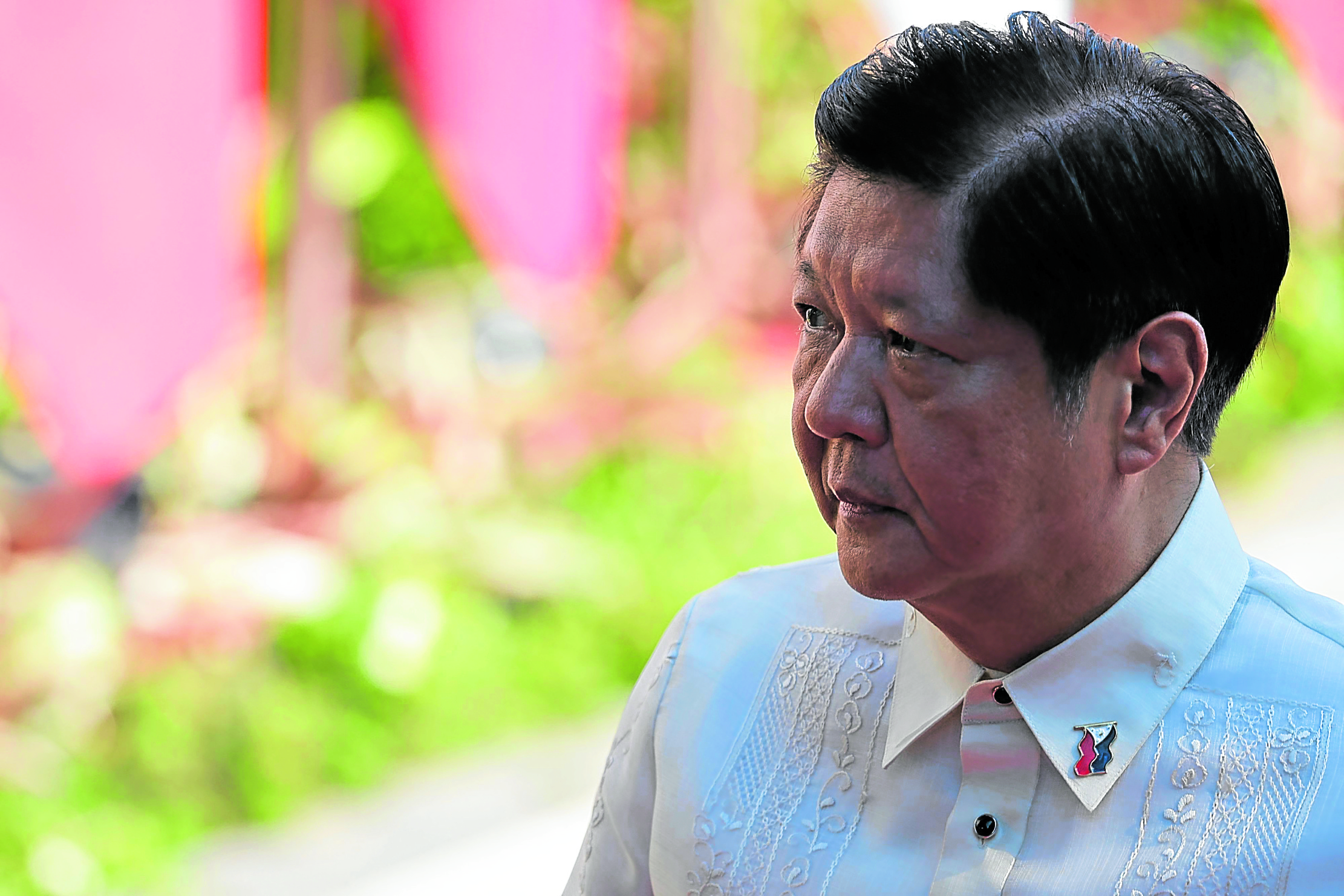
EXHAUSTED Looking more tired than usual, President Ferdinand Marcos Jr. arrives at the leaders’ summit of the Association of Southeast Asian Nations in Indonesia. —AFP
MANILA, Philippines — There has been a pivot in the Philippines’ foreign policy since President Ferdinand Marcos Jr. took the highest position in the country. Now, the country is dancing with two global powers – restoring ties with the United States but “not closing its doors” to China.
Chester Cabalza, founder and president of the International Development and Security Cooperation, said this on Thursday as he noted that the end goal of the Marcos administration is still to achieve independent foreign policy.
“We are not siding on one side. It just so happens that Washington was able to articulate well what they want for the Philippines, and we have common national interests and threats. That’s the reason why Marcos Jr. is engaging with Washington–with President Joe Biden. The foreign policy is in Washington’s favor right now. But we’re not closing the doors to Beijing,” Cabalza said over INQside Look.
The United States and the Philippines drifted apart during the term of Marcos’ predecessor Rodrigo Duterte, who was more inclined to warm ties with the country’s neighbor China.
Coming from a six-year slump in its relations with the Philippines, Cabalza said the United States is now on a mission to “lure us in trying to show that they are a competent and appropriate partner when it comes to what is happening now in the Indo-Pacific region.”
The United States’ aggressiveness in wooing the country, he said, is also because it knows that China is just in the Philippines’ backyard.
‘China can’t lose PH’
Despite the continuous encroachment of Chinese vessels in the contested West Philippine Sea and the strong pronouncements of Beijing against Manila’s boosted ties with its rival Washington, Cabalza raised an unpopular point: “China cannot afford to lose the Philippines.”
“I know China cannot afford to lose the Philippines because of our geographic importance. And secondly, because they really would want to address the many insecurities they have with the Philippines,” he pointed out.
Cabalza took note of the 2016 Hague ruling, which the Philippines won against China, declaring that Beijing had no legal basis for its sweeping claims over the South China Sea.
READ: Marcos to assert Hague ruling
“For China to become a superpower, it has to stabilize that narrative. That they are friends with the Philippines. Because if the Philippines becomes their enemy–with that kind of ruling, their legitimacy as a superpower will be in question,” he said.
In less than a year since assuming office, Marcos has made official visits to the United States and China, where he met his counterparts.
Among the things Marcos discussed with Chinese President Xi Jin Ping are a “compromise” that would allow Filipinos to fish again in their natural fishing grounds in the West Philippine Sea and the conduct of joint oil explorations–a plan that was preparing to set sail but immediately sank during the Duterte administration.
READ: China to offer ‘compromise’ on PH fishers’ plight – Marcos
China has also repeatedly warned the Philippines against expanding its ties with the United States, especially on matters of defense and security.
Over the past few months, the longtime allies had expanded the access of American troops in Philippine military bases and also conducted their largest-ever joint military exercises.
READ: US, PH kick off largest military exercises
In Marcos’ visit to Washington, among the promises made by the United States was that it would have the Philippines’ back on matters concerning the South China Sea.
READ: We have your back in South China Sea – Austin to Marcos
Cabalza also pointed to a pattern: “Whenever our President goes to Washington, higher Chinese officials go to Manila. And when the President goes to Beijing, higher American officials go to Manila.”
“In other words, they need us. We are important. And let’s play that game. But of course, it has consequences also. It’s quite a dangerous act for President Marcos but it seems like, based on my reading right now on his actuations and foreign policy, we are on the right track so far,” he said.